Episodes
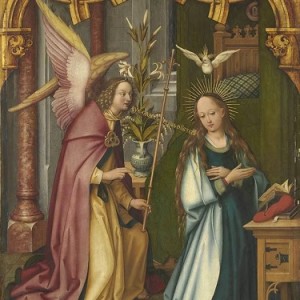
Tuesday Mar 24, 2020
Tuesday Mar 24, 2020
Last week, Wyoming Catholic College students left campus, not for Outdoor Week, but for their homes to wait out COVID-19. As they traveled, our faculty—rather than recording podcasts—did a remarkable job in retooling their courses for distance rather than in-person teaching. Online classes began Monday, March 23.
As millions of Catholics worldwide look to Mary’s intercession in this time of crisis, in theology class our juniors are studying the doctrine of Mary, of the Theotokos, the God-Bearer by reading St. John Henry Newman’s letter to The Rev. E. B. Pusey.
On this extended podcast just in time for the Feast of the Annunciation, you’ll listen in on the class as Dean Kyle Washut and Dr. Jeremy Holmes discuss The Theotokos.
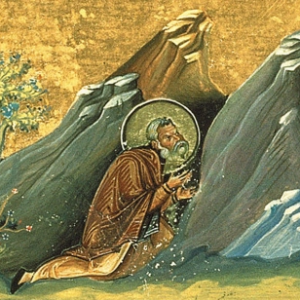
Thursday Mar 19, 2020
Thursday Mar 19, 2020
“And men go abroad to admire the heights of mountains, the mighty waves of the sea, the broad tides of rivers, the compass of the ocean, and the circuits of the stars,” wrote St. Augustine of Hippo in his Confessions, “yet [they] pass over the mystery of themselves without a thought.”
In Confessions, Augustine explores how for years he passed over the mystery of his own self until he began actively exploring that mystery. Why do we behave as we do? What’s the appeal of sin? What’s the appeal of holiness? Why are we so restless? What is truth?
In this fourth lecture in the distance learning course "Into the Lenten Desert: Learning to Pray with the Medieval Masters," Dr. Baxter explores “Augustine’s Restless Heart and the Inward Turn: What Augustine Learned from the Pagans.”

Thursday Mar 12, 2020
Thursday Mar 12, 2020
“I have a divine sign…,” said Socrates in his Apology. “This began when I was a child. It is a voice, and whenever it speaks it turns me away from something I am about to do, but it never encourages me to do anything.”
Mysticism is hardly a Christians-only domain. And in fact the Medieval Masters learned a great deal from the Greek pagans, particularly Plato.
In this third lecture in the distance learning course “Into the Lenten Desert: Learning to Pray with the Medieval Masters,” “Pagans Grope Toward God: Piety and Prayer in Classical Antiquity,” Dr. Baxter explores the connections between Greek philosophy and mysticism and the Christian tradition in which we stand today.

Thursday Feb 27, 2020
Into the Lenten Desert: 1) The Soul from Whom God Hides Nothing by Dr. Jason Baxter
Thursday Feb 27, 2020
Thursday Feb 27, 2020
Lent, said Pope Benedict XVI, “is a period of spiritual ‘combat’ which we must experience alongside Jesus, not with pride and presumption, but using the arms of faith: prayer, listening to the word of God and penance.”
Few Christians knew how to wield those weapons of prayer, listening, and penance than the Medieval Masters. These were the priests, bishops, theologians, monks, and hermits who defined the great doctrines of our faith, established many of the traditions we still follow today, and distinguished themselves as spiritual warriors against the world, the flesh, and the devil.
This Lent, Dr. Jason Baxter introduces the great saints of that era and shares what they can teach us about prayer, penance, and spiritual warfare.
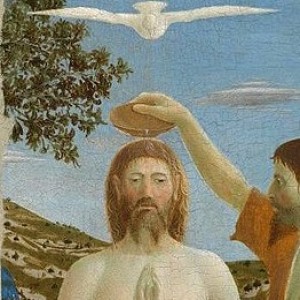
Tuesday Jan 14, 2020
Blessings the Waters, Living with Christ with Prof. Kyle Washut
Tuesday Jan 14, 2020
Tuesday Jan 14, 2020
All of Lander including our Wyoming Catholic College Students love Sinks Canyon. The natural beauty is breathtaking and on any given day regardless of the season, you can meet people hiking, rock climbing, fishing, camping, birding, and mountain biking. Next week, however, you’ll be able to see another unexpected activity: processing, worshipping, and the blessing of the waters.
The Blessing of the Water is a part of the Eastern Christian celebration of Theophany, the Feast of Christ’s baptism. In addition, this feast opens for us a new and larger understanding of time—specifically liturgical time and the liturgical calendar.
Wyoming Catholic College Professor Kyle Washut and reflected on these things for some time and is our guest on this edition of The After Dinner Scholar.
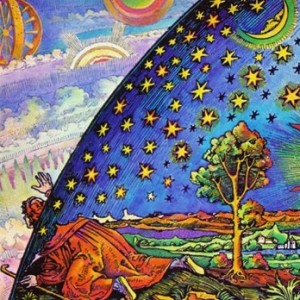
Tuesday Jan 07, 2020
Time: Thick, Deep, High with Dr. Jeremy Holmes
Tuesday Jan 07, 2020
Tuesday Jan 07, 2020
We celebrated Epiphany last Sunday. We will celebrate the Baptism of Jesus next Sunday then the following Monday we begin “Ordinary Time.” There’s something going on here—actually many things going on here—that cannot be summed up with Google Calendar and a wristwatch.
Google Calendar and wristwatch time is what philosopher Charles Taylor calls “secular time”: It’s 10 AM. I have a meeting at two this afternoon. The corporate quarter ends on January 30. The year is 2020.
But is that all there is to time? Is it merely an empty expanse of moments that we fill or is there—as Taylor suggests—something more to time, something that, as he puts it, gathers and reorders secular time?
Dr. Jeremy Holmes has thought a great deal about the nature of time and is our guest this week on The After Dinner Scholar.
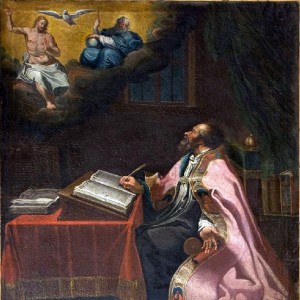
Tuesday Nov 05, 2019
Mysticism in Our Cultural Wasteland with Dr. Jason Baxter
Tuesday Nov 05, 2019
Tuesday Nov 05, 2019
In his newest book, The Irony of Modern Catholic History, George Weigel argues that in our secular and increasingly non-rational culture, the Catholic intellectual tradition could save the mind of the West. Similarly in a new book-in-progress, Wyoming Catholic College’s Dr. Jason Baxter argues that in our disenchanted and materialistic culture, Catholic mysticism could save the spirit of the West.
Dr. Baxter’s new book is about mysticism and about what we can learn about prayer from the Church Fathers. A few weeks ago, he shared his initial chapter with our faculty.
In that chapter, Dr. Baxter starts by noting that beginning in the early twentieth century, “for the first time in human history, it was possible to spend your whole life not just without encountering God, but without knowing you were supposed to.”
The question is: Where do we go from there?
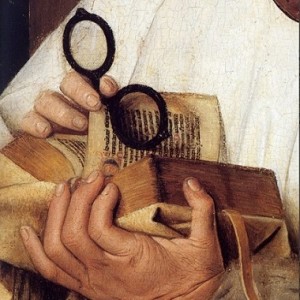
Tuesday Sep 10, 2019
Christ, the Incarnation, and the Scriptures with Prof. Travis Dziad
Tuesday Sep 10, 2019
Tuesday Sep 10, 2019
After graduating from Wyoming Catholic College in 2013, Travis Dziad completed his Masters in Theology in Austria at the International Theological Institute. Then he went into the Ph.D. in Theology at Ave Maria University.
This summer in addition to returning to Wyoming Catholic College as Teaching Fellow for Theology, Leadership, and Outdoor Education, soon-to-be-Dr. Dziad successfully defended his dissertation which was on the timely topic of the inspiration of Scripture. Prof. Dziad is our guest this week on The After Dinner Scholar.
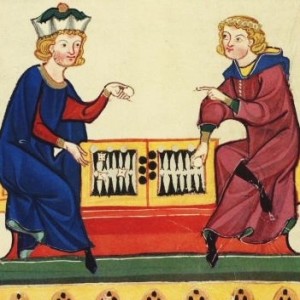
Tuesday Jul 16, 2019
Tuesday Jul 16, 2019
“There is nothing on this earth more to be prized than true friendship,” wrote St. Thomas Aquinas. In fact, he went on, “Friendship is the source of the greatest pleasures, and without friends even the most agreeable pursuits become tedious.”
Jesus made it clear that while the first and greatest commandment is to love God, the second is love for neighbor. And “neighbor” for Jesus even extends to enemies.
In the second part of the second part of the Summa Theologiae, St. Thomas Aquinas explored the question of love for God, neighbors, enemies, and friends.
At The Wyoming School of Catholic Thought, theologian Dr. Jeremy Holmes led us through Thomas’ thinking. Here, in part, is what he said.
Texts from St. Thomas Aquinas:
- Summa Theologae II.II, Question 23, Article 1; Question 25, Article 1; Question 26, Article 3
- Disputed Questions on the Virtues, Question 2, Article 2
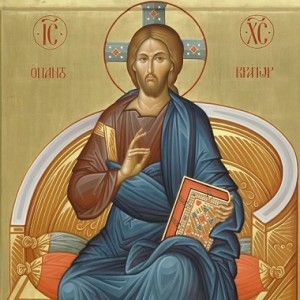
Tuesday May 28, 2019
Eastern Church, Western Church with Fr. David Anderson
Tuesday May 28, 2019
Tuesday May 28, 2019
Most Catholics know only the Roman or Latin Novus Ordo rite of the Eucharist. That’s not a surprise since it’s that rite that is celebrated almost exclusively in most of our churches. But the Catholic Church has not one, not two, but twenty-three different rites falling into six basic families: Latin, Alexandrian, Antiochian, Armenian, Chaldean and Constantinopolitan better known as Byzantine.
Our Wyoming Catholic College community is no stranger to the Byzantine rite. A nearby priest has celebrated that rite, the Divine Liturgy of St. John Chrysostom, regularly. Beginning this fall, however, we will all become even more familiar with the Byzantine liturgy as the college welcomes Fr. David Anderson as a second college chaplain. Fr. Anderson is our guest this week on The After Dinner Scholar.

